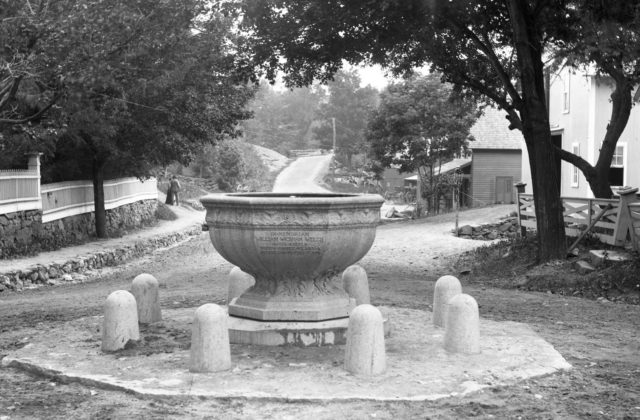Norfolk Then
Now on the grounds of the Norfolk Library, the Welch Memorial Fountain once stood on Greenwoods Road at the entrance to West Side Road. It was erected in 1895 in honor of Dr. William Wickham Welch, Norfolk’s town doctor for 53 years. Dr. Welch’s son, William Henry, pursued a career in medicine as well, but on an international scale, becoming one of the world’s leading experts in microbiology and pathology. In September of 1918, President Woodrow Wilson asked Dr. William Henry Welch to orchestrate a medical response to a rapidly spreading epidemic. With a team of epidemiologists, Dr. Welch went to Camp Devens where the outbreak was particularly severe. A training center for troops during World War I, Camp Devens was 35 miles northwest of Boston, and it was seriously overcrowded. Built to house 36,000 troops, it contained more than 45,000, and the virus struck with a suddenness and virulence rarely seen. The team found the medical situation very grave, with the number of deaths averaging 100 a day. They immediately recommended measures to control the outbreak, the most dramatic being a halt to transfers in or out of Camp Devens until the epidemic passed. Performing an autopsy, Dr. Welch remarked: “This must be some kind of new infection — or plague.” He was correct. It was the Spanish Flu.
— Ann Havemeyer
Photo Courtesy of the Norfolk Historical Society

